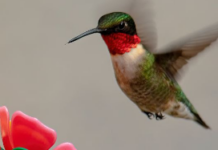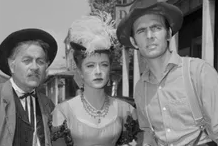A bill that would allow the consumption of alcohol on the Kansas State Fairgrounds outside of beer or wine gardens was approved by Kansas lawmakers last week and awaits the governor’s signature before becoming law.
The legislation, which would also allow the sale of hard liquor on the fairgrounds, would become effective after being published in the Kansas Register.
However, before it passed last week out of a conference committee that resolved differences between House and Senate versions of SB 2, three other House bills related to alcohol were attached to it and also approved by legislators.
Those other changes include allowing liquor stores to sell and deliver liquor and beer to nearby public venues and clubs for resale, for farm wineries to sell wine for consumption on the premises, and allowing a higher alcohol content in Kansas wines.
As with the initial state fair bill, Reps. Paul Waggoner and Jason Probst, both of Hutchinson, voted for it, while Rep. Michael Murphy, Sylvia, voted no, and Sen. Mark Steffen, R-Hutchinson, also voted against the bill.
Rep. Ronald Ellis, R-Meriden, voted against the bill. All other representatives from the Shawnee County area voted to approve it.
As for Saline County, Sen. J.R. Claeys was absent and Reps. Clarke Sanders and Steven Johnson voted against the bill.
“It’s something we’ve been working on a couple of years,” said Kansas State Fair manager Bryan Schulz, who inherited the effort for passage from his predecessor when he took the job.
“We’re happy the Legislature put it through,” Schulz said. “Now we’re kind of waiting to see when it goes into effect. Then the (fair) board will make the decision whether or not it will take place at this year’s fair or next.”
Schulz said from his brief discussions with the governor, she appeared to support the measure. But the vote by lawmakers appeared veto-proof if she didn’t.
Currently, alcohol is only allowed in the grandstands and designated enclosed beer and wine gardens within the fairgrounds. The new law allows applications to specify other areas on the grounds where consumption would be allowed outside of those physically enclosed areas.
The legislation also transfers the majority of alcohol taxes collected on alcohol sales on the fairgrounds into the State Fair’s Capital Improvement Fund, rather than into alcohol liquor funds that go to Reno County and cities within the county.
A fiscal note from January 2021 estimated that the loss to local municipalities would be about $23,700 in the first year.
Other unrelated parts of the bill added during the session that were retained include a $25 cap on what municipalities may charge for temporary alcohol permits and allowing applicants up to 12 permits a year, instead of four.
Among changes to the Kansas Liquor Control Act from the merged House bills is allowing a licensed liquor retailer to sell alcohol to a venue, club or drinking establishment for resale if the buyer is “located in a corner within two miles measured along the adjacent county boundary,” as well as in the same or an adjacent county as the retailer.
A Kansas Restaurant and Hospitality Association representative in favor of the expansion stated during a Jan. 27 House committee hearing, “economic change in western Kansas is necessitating greater flexibility for licensees to purchase products from a wider selection of retail liquor stores,” according to a supplement note.
A 2021 Special Committee on Liquor Law Modernization proposed allowing such sales regardless of proximity, meaning a retailer could sell to any licensee in the state.
However, opponents voiced concern that would “interrupt current regional markets,” the supplemental note states.
There also were several changes related to wine. As adopted, any applicant who already has a farm winery license must be granted a cereal malt license if it applies, and municipalities can’t deny a license based on zoning or other city or county regulations.
The changes also eliminate an existing provision requiring the recipient of a beer license “be of good character and reputation in the community in which the person resides.”
The bill amends the law’s definitions of certain domestic wine classifications by raising the allowable alcohol by volume (ABV) level.
Domestic table wine will now be classified as wine manufactured in Kansas with no more than 16% ABV, up from 14%, while the category of “domestic fortified wine” is defined as a wine of more than 16% ABV, but no more than 20% ABV.
All of the law changes take effect when published in the Kansas Register, except the change in alcohol volume, which will be effective Jan. 1, 2023.
As reported in The Hutchinso News.




